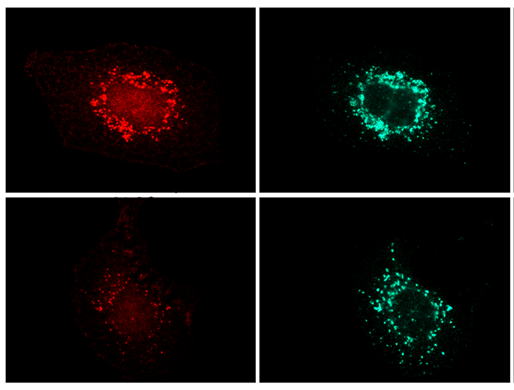V-ATPase: a master effector of E2F1-mediated lysosomal trafficking, mTORC1 activation and autophagy
Meo-Evoli, N, Almacellas E, Massucci FA, Gentilella A, Ambrosio S, Kozma SC, Thomas G, Tauler A.
Oncotarget
5
,
-
(2015).
In addition to being a master regulator of cell cycle progression, E2F1 regulates other associated biological processes, including growth and malignancy. Here, we uncover a regulatory network linking E2F1 to lysosomal trafficking and mTORC1 signaling that involves v-ATPase regulation. By immunofluorescence and time-lapse microscopy we found that E2F1 induces the movement of lysosomes to the cell periphery, and that this process is essential for E2F1-induced mTORC1 activation and repression of autophagy. Gain- and loss-of-function experiments reveal that E2F1 regulates v-ATPase activity and inhibition of v-ATPase activity repressed E2F1-induced lysosomal trafficking and mTORC1 activation. Immunoprecipitation experiments demonstrate that E2F1 induces the recruitment of v-ATPase to lysosomal RagB GTPase, suggesting that E2F1 regulates v-ATPase activity by enhancing the association of V0 and V1 v-ATPase complex. Analysis of v-ATPase subunit expression identified B subunit of V0 complex, ATP6V0B, as a transcriptional target of E2F1. Importantly, ATP6V0B ectopic-expression increased v-ATPase and mTORC1 activity, consistent with ATP6V0B being responsible for mediating the effects of E2F1 on both responses. Our findings on lysosomal trafficking, mTORC1 activation and autophagy suppression suggest that pharmacological intervention at the level of v-ATPase may be an efficacious avenue for the treatment of metastatic processes in tumors overexpressing E2F1.
